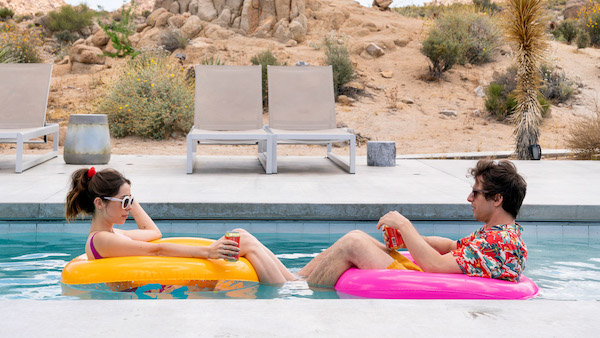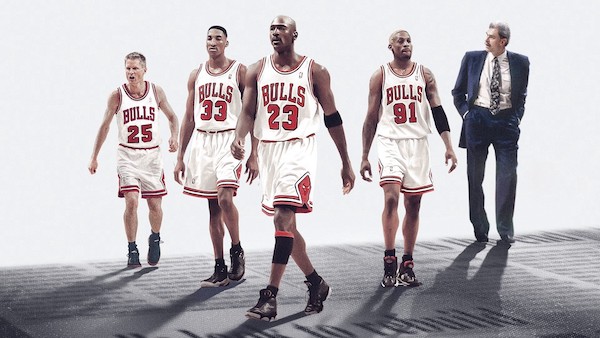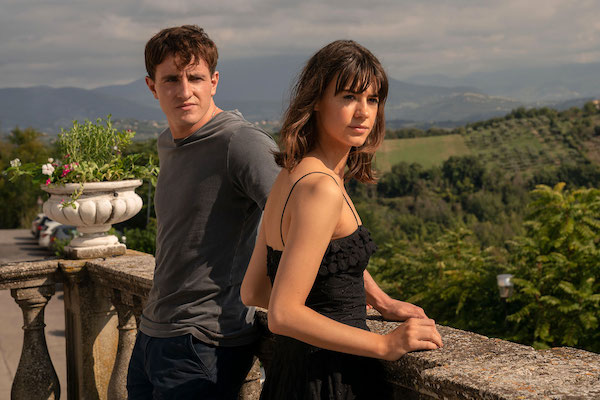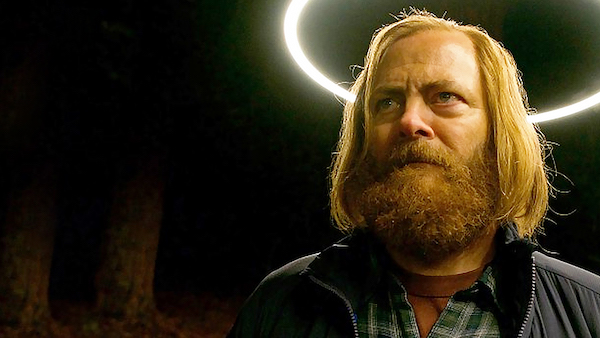Review: Palm Springs – What Day Would You Want to Be Stuck In?

Palm Springs debuted on Hulu in July of 2020, in a time with little competition, because we weren’t allowed to go to movie theaters. But more surprising, even in normal times this might be my favorite movie of the year.
(Though Da 5 Bloods is also a huge achievement and definitely a must-see. Seriously, don’t skip it because it’s an hour longer and “serious” or you think it feels like homework — it’s a powerful, beautiful film.)
Why Palm Springs works so well is even more interesting. At first glance, it’s just a rehash of the Groundhog Day formula, but with a more modern sense of humor and a more straightforward romantic comedy setup. And since Groundhog Day is basically a perfect movie, of course its spiritual successor also works. But what does it do to deserve so much credit? Three huge, crucial story changes:
ONE: EDITING
This is the nerdiest structural critique, but also the bravest choice the movie makes. The original Groundhog Day runs about 1 hour 40 minutes, but takes the first full 18 minutes setting up the character and his predicament before Phil wakes up in his first time loop. We then spend the middle of the movie watching him figure out the “rules” of this world, and experiment with different ways to get out. Only after all that does he commit to a path of personal growth.
Palm Springs skips over the entire first two sections of Groundhog Day, dropping us in with a character already deep into his endlessly repeating purgatory. Nyles is past his ‘figuring out how it all works’ phase, so the movie kicks off with his general acceptance of being stuck, and what that means for him on both a practical and existential level.
He’s making the best of what his life has become, built some simple rules for how not to be an awful person in that world, but he’s lost any sense of meaning or purpose beyond that. This way, we get to spend the whole movie on his journey of emotional growth, when we get to the second big change that makes all the difference in the world.
TWO: COMPANIONSHIP
The biggest game-changer in this script is the introduction of other characters into the same repeating loop. Not only does this unlock a lot more potential for fun that the movie makes great use of, it opens up totally new emotional territory to explore. In a lot of ways, this is actually Sarah’s movie, with Nyles playing the mentor/companion as she goes through phases of denial, negotiation, and acceptance before coming out the other side and forcing both of them to grow and change.
Now, this isn’t a story of a man getting one day just right so he can earn redemption, which has always had a sort of creepy stalker implication in Groundhog Day, since our protagonist’s whole goal is to effectively trick the woman he desires into loving him back.
Instead, Palm Springs is a story about what it means to share a life with someone, even if that life, like most lives, is going to be a lot of the same thing over and over again. And the ability to make peace with that is beautiful in a whole new way from the original.
THREE: SETTING
The least consequential, but this update allows for whole new shades to the idea of getting stuck on repeat. A destination wedding in Palm Springs sounds pretty fun. In normal circumstances, this would be something you look forward to, and almost certainly post to your Instagram to make people jealous. It’s lounging and drinking and catered food with a picturesque backdrop. Who wouldn’t want more days like that?
But again, the movie both exposes how empty all that ultimately is, and pushes its characters to go beyond what we’re supposed to want out of life to find something deeper than the gram-worthy lifestyle that only looks good on the surface. Even the most idyllic, indulgent days lose their luster eventually, and at a certain point you want something more.
So even though Palm Springs pays great homage to its inspiration, with a few key changes it delivers a fresh, funny, and affecting look at how we spend our days and who we want to spend them with — which brings us back to questions we can ask ourselves about our own lives.



